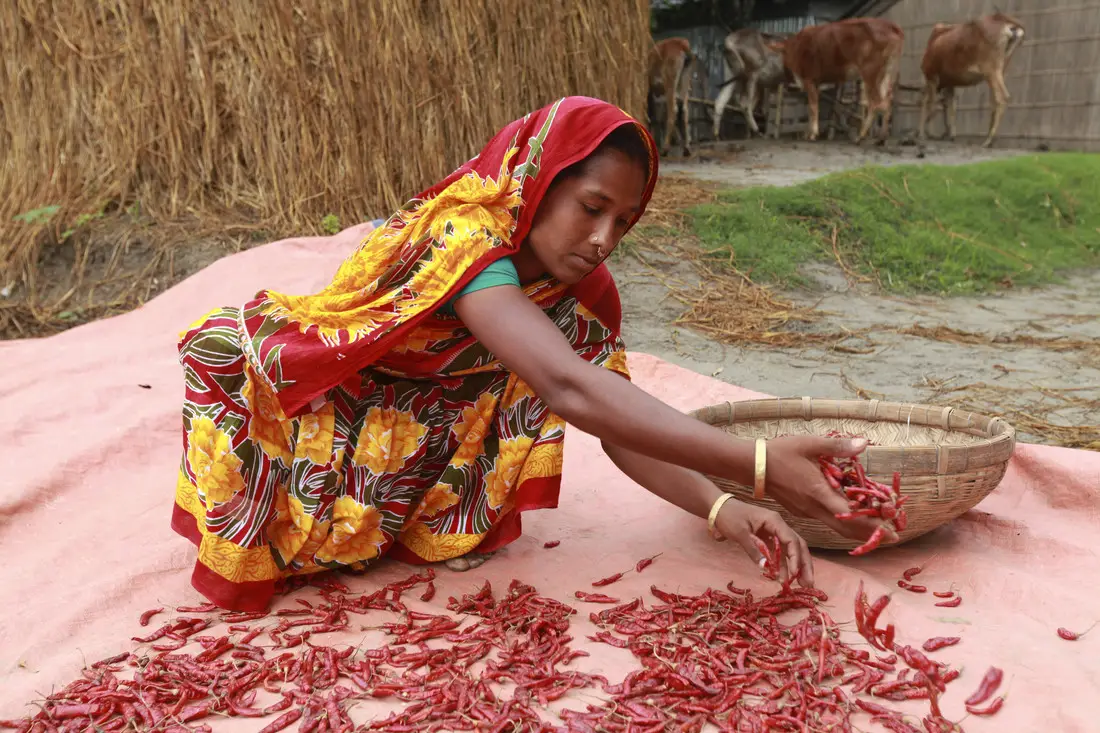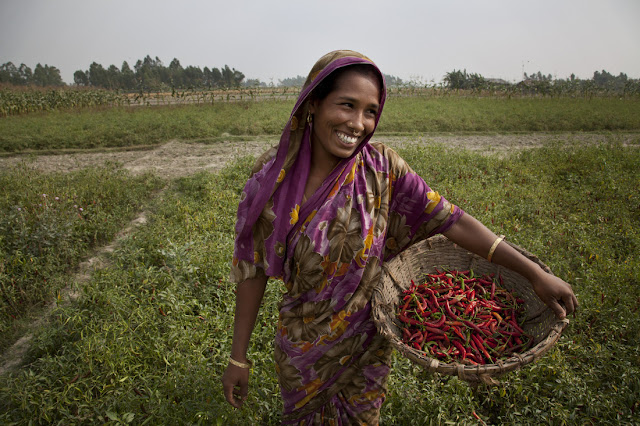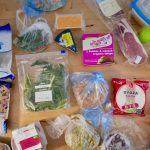
I love spicy food and often use chillies (both fresh and dried) when I’m cooking. I like to think I’m quite good at buying fair-trade, organic and local produce when I can but really, beyond that, how much do I actually know about the people who grow and supply my food? Oxfam work with food producers in impoverished areas around the world to help improve their lives from a roots level. This project with women chilli farmers in Bangladesh really caught my eye.

As part of Oxfam’s bloggers against poverty campaign, I’ve been able to learn a bit more about what they are doing in this bit of the world.
Although Bangladesh is apparently becoming well known for its chilli farming, this doesn’t mean that it’s without problems. Many of the people growing chillies live on shifting river islands or ‘chars’ which are prone to monsoons and cyclones. Because of this, often men leave to find work in the cities, leaving the women to farm the land, which is why it’s the women Oxfam are targeting with this project.
What impressed me is how a lot of their work focusses on empowerment and training. I expected it to be crisis support and reactive help. Of course those are both very important too but Oxfam’s work goes deeper than that. Using local partnerships and training they are teaching people to make their own lives better, tackling poverty at it’s root to ensure a more sustainable future for these communities.

Oxfam has helped farmers to form producer groups to pool resources and make easier work of group tasks. They’ve also set up relationships with Bangladeshi food companies and local banks to help farmers trade, access loans and invest in their businesses. This covers everything from buying equipment (such as chilli drying mats and water pumps) to fertiliser. And importantly, it’s allowing farmers to save and plan for when natural disasters strike in the future.

Amina Begum is the vice president of the Chilli Trader’s Group. She also supports an extended family of nine and an invalided husband through her work. She is confident that chilli producing is having a positive impact on Bangladesh.
“Since chilli farming was introduced we’ve seen a big change, and we don’t have to starve like before. It was really hard for us to get enough food before. If we had something like rice or vegetables we would eat, but otherwise, we would have to starve. Sometimes we went for two or three days without eating anything. “Before, we were deprived. After training, we learned a lot, which has helped me. With that help, my mind’s at peace now”

Joygum Islam is a member of the Chilli Producer Group and vice president of her local community organisation. She gives advice to others about how chilli production and planning ahead can improve life in their village.
“I’ve been vice president of the CBO for two years and I enjoy it. In the meetings, we learn things, like how to grow more chillies or how to make our cows fatter. … We mostly eat dried food, and we try to save some rice if we know the ood is coming. Sometimes we have two meals a day, but some days we only have one meal. I’ve benefited a lot from growing chillies. I now eat better than I used to before. I wouldn’t be able to eat before but I’m getting good quality food now. We have some disposable income to spend on things like chicken and fish.”
————
|
Next time I use dried chillies in my cooking, I’ll certainly stop to think about where they came from. If you want to help, you can donate to Oxfam by going to their website here.
Below is some info on how a regular donation can help the women mentioned above and others. |

*This is not sponsored content, I was not paid to write this post*



What a great post – its so easy to pop some chillies into your shopping basket without a second thought as to where they come from and the impact farming has on their lives. Thanks for sharing!
Really interesting. Happy to share this and help spread the word.
Thank you Sarah! It's a great feel good story isn't it?
Thank you Kate – yes I totally agree – and not just chillies, I'm sure it's the same for lots of other things too!
What a fantastic campaign. I never really think about where my chillis are coming from so this has really opened my eyes.
Fantastic post and so interesting. It is so easy not to give a second thought to where our food comes from and yet it can make such a difference in other people's lives. Thanks for sharing. Eb x
Thanks for your comment Eb. Yes it's so easy to just buy everything conveniently at supermarkets and think no more about it isn't it! This campaign really opened my eyes up! 🙂
এই অ্যাপস ব্যবহারকারী কুরবানী সব ইতিহাস ও বিধি সম্পর্কে জানতে সক্ষম.dcitltd